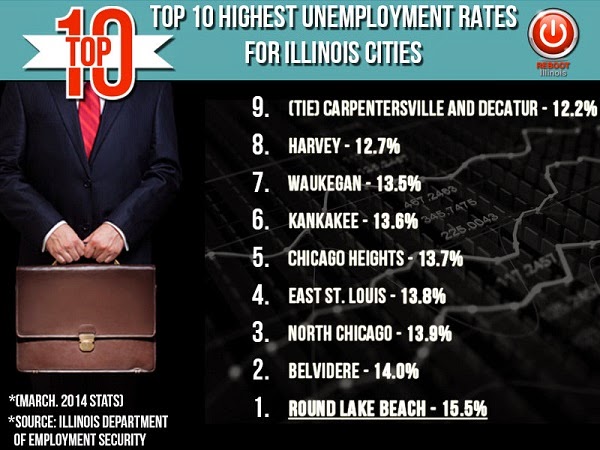"
O Brave New World, that has such things in it." Those were the words of the Savage, the
hero of Aldus Huxley's science-fiction novel of 1932; a prophecy which we see almost daily
as we enter the second decade of the 21st Century. The field of cryogenics presents such
potential, with perplexing medical, legal and moral issues as we see here.
In a case of first impression arising from a dispute over the disposition of
cryopreserved pre-embryos created by sperm donated by plaintiff and ova
donated by defendant, the trial court’s entry of summary judgment for
plaintiff based on the application of the balancing approach used by some
state courts was vacated, and the appellate court remanded the cause for
application of the contractual approach adopted by the majority of other
courts to the previously adduced facts and additional facts the parties may
want to present.
On March 25, 2010, the couple met with physicians and staff at
Northwestern regarding
the creation of the pre-embryos, and appellant deposited sperm to be frozen and used as a
back-up on the date appellee’s eggs were retrieved. The couple also signed a document
entitled “INFORMED CONSENT FOR ASSISTED REPRODUCTION” (the informed
consent). Besides outlining the risks involved with in vitro fertilization, the informed consent
states that “[n]o use can be made of these embryos without the consent of both partners (if
applicable). *** In the event of divorce or dissolution of the marriage or partnership, NMFF
Infertility] will abide by the terms of the court decree or settlement agreement regarding the
ownership and/or other rights to the embryos.” The informed consent contains the following
disclaimer as well:
“The law regarding [in vitro fertilization], embryo cryopreservation, subsequent
embryo thaw and use, and parent-child status of any resulting child(ren) is, or may be,
unsettled in the state in which either the patient, spouse, partner, or any current or future
donor lives, or in Illinois, the state in which the NMFF Program is located. NMFF does
not provide legal advice, and you should not rely on NMFF to give you any legal advice.
You should consider consulting with a lawyer who is experienced in the areas of
reproductive law and embryo cryopreservation as well as the disposition of embryos,
including any questions or concerns about the present or future status of your embryos,
your individual or joint access to them, your individual or joint parental status as to any
resulting child, or about any other aspect of this consent and agreement.”
The co-parent agreement was never signed by the couple. Nevertheless, on April 6, 2010,
appellant deposited sperm and eight eggs were retrieved from appellee. The couple agreed
to fertilize all eight based on the doctor’s advice that doing so would be appellee’s best
chance of having a child, and three of the pre-embryos ultimately survived to viability. The
next day, appellee began her chemotherapy treatment.
In May 2010, appellant sent appellee a text message ending their relationship. On August
22, 2011, he filed a pro se complaint in the circuit court of Cook County seeking to
permanently enjoin appellee from using the pre-embryos so as to “preserv[e] [his] right to
not forcibly father a child against his will.” On September 1, 2011, appellee responded with
a three-count verified counterclaim: in count I, she sought a declaratory judgment granting
her sole custody and control over the pre-embryos and the right to use them to bear children;
in count II, she alleged breach of contract and requested specific performance of the parties’
agreement; and in count III, she sought relief under a theory of promissory estoppel.
A. Standard of Review
“Summary judgment is appropriate when ‘the pleadings, depositions and admissions on
file, together with the affidavits, if any, show that there is no issue as to any material fact and
that the moving party is entitled to judgment as a matter of law.’ ” Tunca v. Painter,
2012
the circuit court’s ruling on a motion for summary judgment. Tunca, 2012 IL App (1st)
110930, ¶ 13.
B. The Law of Cryopreserved Pre-Embryos
This case presents an issue of first impression in Illinois; namely, who controls the
disposition of cryopreserved pre-embryos created with one party’s sperm and another party’s
ova. Courts in other jurisdictions have addressed this issue under various circumstances and
generally conducted three types of analyses in resolving this question: (1) a contractual
approach; (2) a contemporaneous mutual consent approach; and/or (3) a balancing approach.
Reber, 42 A.3d at 1134. Each of these approaches is discussed by the Court below.
1. The Contractual Approach
The first approach applied by courts in these circumstances is the contractual approach.
Under this approach, courts will enforce contracts governing the disposition of pre-embryos
which were entered into at the time of in vitro fertilization so long as they do not violate
public policy. Witten, 672 N.W.2d at 776. The benefits of a contractual approach are that it
encourages parties to enter into agreements that will avoid future costly litigation, and that
it removes state and court involvement in private family decisions.
Thus, while a majority of courts utilize the contractual approach and have sought to give
effect to the parties’ advance directives regarding the disposition of pre-embryos, there is not
a unanimous view that such agreements are within the public interest. The next approach
places the emphasis on the contemporaneous desires of the parties.
2. The Contemporaneous Mutual Consent Approach
The second approach applied by courts is known as the contemporaneous mutual consent
model. This approach proposes that “ ‘no embryo should be used by either partner, donated
to another patient, used in research, or destroyed without the [contemporaneous] mutual
-9-consent of the couple that created the embryo.’ ” Witten, 672 N.W.2d at 778. Under this approach,“ ‘advance instructions would not be treated as binding contracts. If either partner has a change of mind about disposition decisions made in advance, that person’s current objection would take precedence over the prior consent. If one of the partners rescinds an advance disposition decision and the other does not, the mutual consent principle would not be satisfied and the previously agreed-upon disposition decision could not be
carried out.
In this regard, the contemporaneous mutual consent model “give[s] each progenitor a
powerful bargaining chip at a time when individuals might very well be tempted to punish
their soon-to-be ex-spouses,” “[which] makes no sense and may invite individuals to hold
hostage their ex-partner’s ability to parent a biologically related child in order to punish or
to gain other advantages.”. The next approach attempts to address these concerns by placing
the disposition decision exclusively in the hands of the court.
3. The Balancing Approach
The third and final approach is for the court to balance the interests of the parties. Under
this approach, courts enforce contracts between the parties, at least to a point, then balance
their interests in the absence of an agreement. Although this approach allows courts leeway
to determine who is entitled to use pre-embryos absent an agreement regarding disposition,
the Supreme Court of Iowa has criticized this approach for its internal inconsistency, noting:
“Public policy concerns similar to those that prompt courts to refrain from enforcement
of contracts addressing reproductive choice demand even more strongly that we not
substitute the courts as decision makers in this highly emotional and personal area.
Nonetheless, that is exactly what happens under the decisional framework based on the
balancing test because the court must weigh the relative interests of the parties in
deciding the disposition of embryos when the parties cannot agree.”
Courts applying the balancing approach have noted that a party’s inability to have a child
weighs in his or her favor. (Citations) However, none of these courts have awarded one party
the right to implant pre-embryos in the face of a prior agreement stating that both parties’
consents were required to make use of the pre-embryos.
C. The Proper Approach
In the case at bar, the parties urged the court to apply different approaches: appellant
argued that the court should apply the contemporaneous mutual consent approach adopted
by the Supreme Court of Iowa in Witten; and appellee argued that this court should either
enforce the parties’ agreements or balance their interests as in Reber.
Having considered the arguments of the parties and case law from other jurisdictions, we
believe that the best approach for resolving disputes over the disposition of pre-embryos
created with one party’s sperm and another party’s ova is to honor the parties’ own mutually
expressed intent as set forth in their prior agreements. We therefore join those courts that
have held that “[a]greements between progenitors, or gamete donors, regarding disposition
of their pre-zygotes should generally be presumed valid and binding, and enforced in any
Appellant argued that “a contract to create and use pre-embryos is the same as a contract
to engage in sexual intercourse,” and thus void ab initio. He also argued that Illinois public
policy requires the couples’ consent for any use of the pre-embryos “at the time of the
proposed use.” The Court disagreed, stating, "There is simply no credible basis to find that the process of in
vitro fertilization is the equivalent of two persons engaging in sexual intercourse, and
appelant fails to cite any clear public policy against contracts for the right to use pre-embryos created with one party's sperm and another party's eggs. In fact, the Court found that, contrary to his claim, Illinois public policy would seem to favor such contracts given that the
Illinois legislature has specifically provided for contracts in surrogacy situations and set forth the requirements thereof.
750 ILCS 47/25 (West 2010)."
D. The Informed Consent and the Co-Parent Agreement
In this case, appellant maintained that the informed consent executed by the parties is a
valid contract which prevents use of the pre-embryos without his consent. Specifically, he
claimed that the informed consent is an expression of both his and appellee’s intent that the
pre-embryos cannot be used without both of their consents.
Appellee claimed that appellant has misinterpreted the informed consent and argued that
it is “simply the document by which the hospital sets forth its own policies regarding the
control of pre-embryos.” (Emphasis in original.) She also countered that appellant agreed to
the subsequently written co-parent agreement where he promised that he would sign it, then
performed his one critical obligation by providing sperm to create the pre-embryos.
Appellant replies that he never promised to sign the co-parent agreement and never
agreed to its terms. He also claims that he did not perform under the co-parent agreement
because he told appellee that “we needed to discuss it,” and he was “simply honoring the
prior commitment he had made on March 25.”
The Court concluded "Being a case of first impression, the circuit court did an admirable job of considering the alternative approaches taken by other states’ courts in addressing the issue of how to
determine the disposition of cryopreserved pre-embryos created with one party’s sperm and
another party’s ova. Obviously, the parties did not know which approach the circuit court
would adopt prior to the circuit court applying the balancing approach and entering summary
judgment in favor of the appellee. As the Court explained, the proper test to apply is the
contractual approach. Consequently, it vacated the entry of summary judgment in favor of
the appellee. As the parties were unable to present evidence in support of their respective
positions in light of the contractual approach, the Court remanded this matter to the circuit court to
apply the contractual approach to any facts previously adduced and to any facts the parties
wish to present on remand. This court retained jurisdiction over this matter and we instruct the
circuit court and the parties to conclude any additional litigation they deem necessary within
180 days of this court issuing this mandate.
Reversed and remanded with instructions."
JACOB SZAFRANSKI, Plaintiff-Appellant, v. KARLA DUNSTON,
Defendant-Appellee.
First District, Second Division
Docket No. 1-12-2975
June 18, 2013




.jpg)